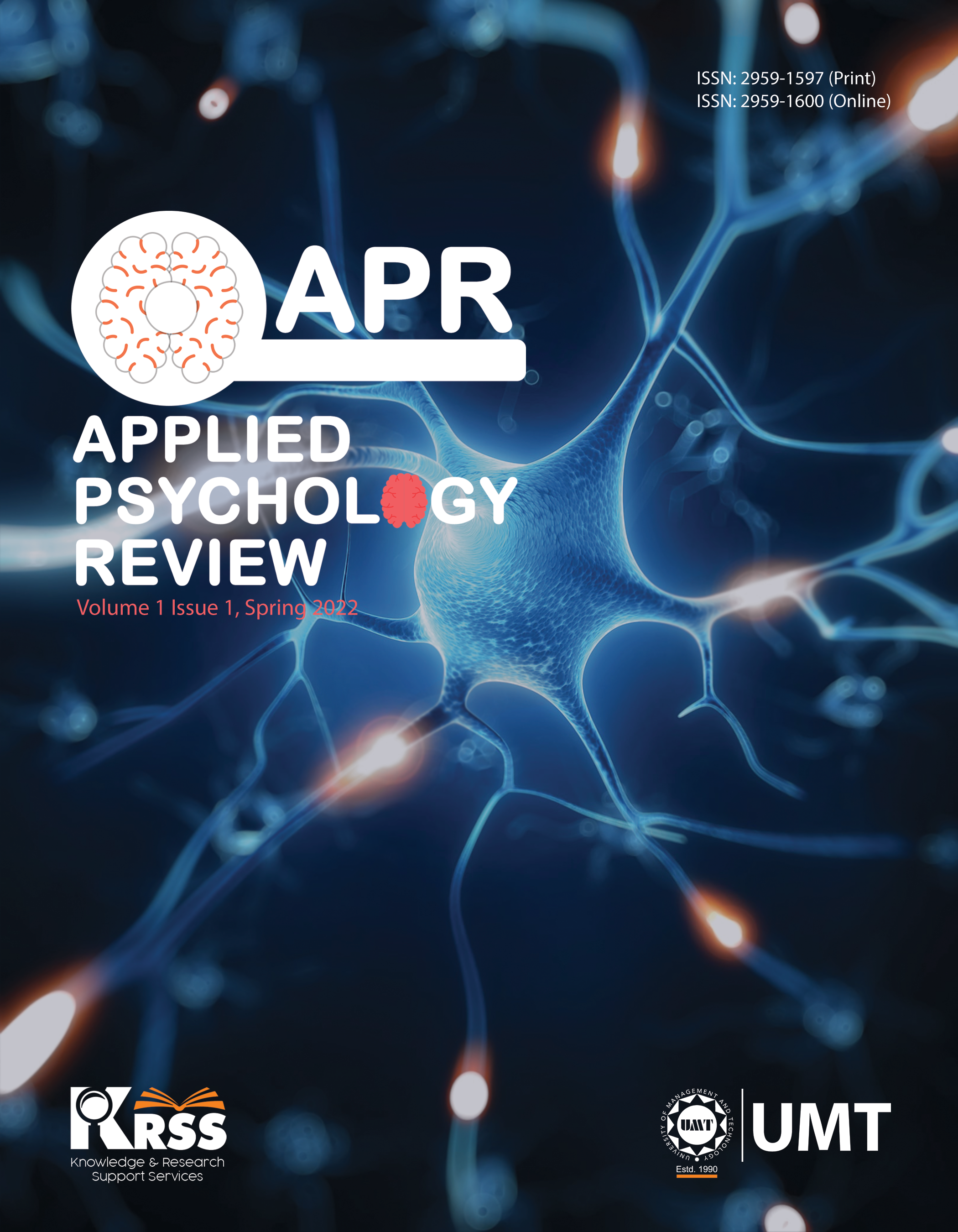Perceived Stigma, Help Seeking Behavior and Psychological Well-being, among Substance Abuse Patient
Abstract
 Abstract Views: 116
Abstract Views: 116
This research was intended to examine the interrelationship of perceived stigma, help-seeking behavior, and psychological well-being among Substance abuse patients. A correlational research design was employed and 80 substance abuse patients between the age range 18-45 (Mean=31.46, SD=4.77) were recruited in the study. The Perceived Stigma of Addiction Scale, Psychological Wellbeing Scale, and general Help-seeking Questionnaire was used as assessment measures. The results showed that perceived stigma of substance abuse was negatively correlated with psychological well-being while no significant correlation was found between help-seeking behavior and psychological well-being. Perceived stigma came out to be a significant negative predictor of psychological well-being among substance abuse patients. Help-seeking behavior did not mediate the relationship between perceived stigma and psychological well-being. The results of this study will be used in designing and modifying future assessment measures, treatment practices, and fitness strategies.




